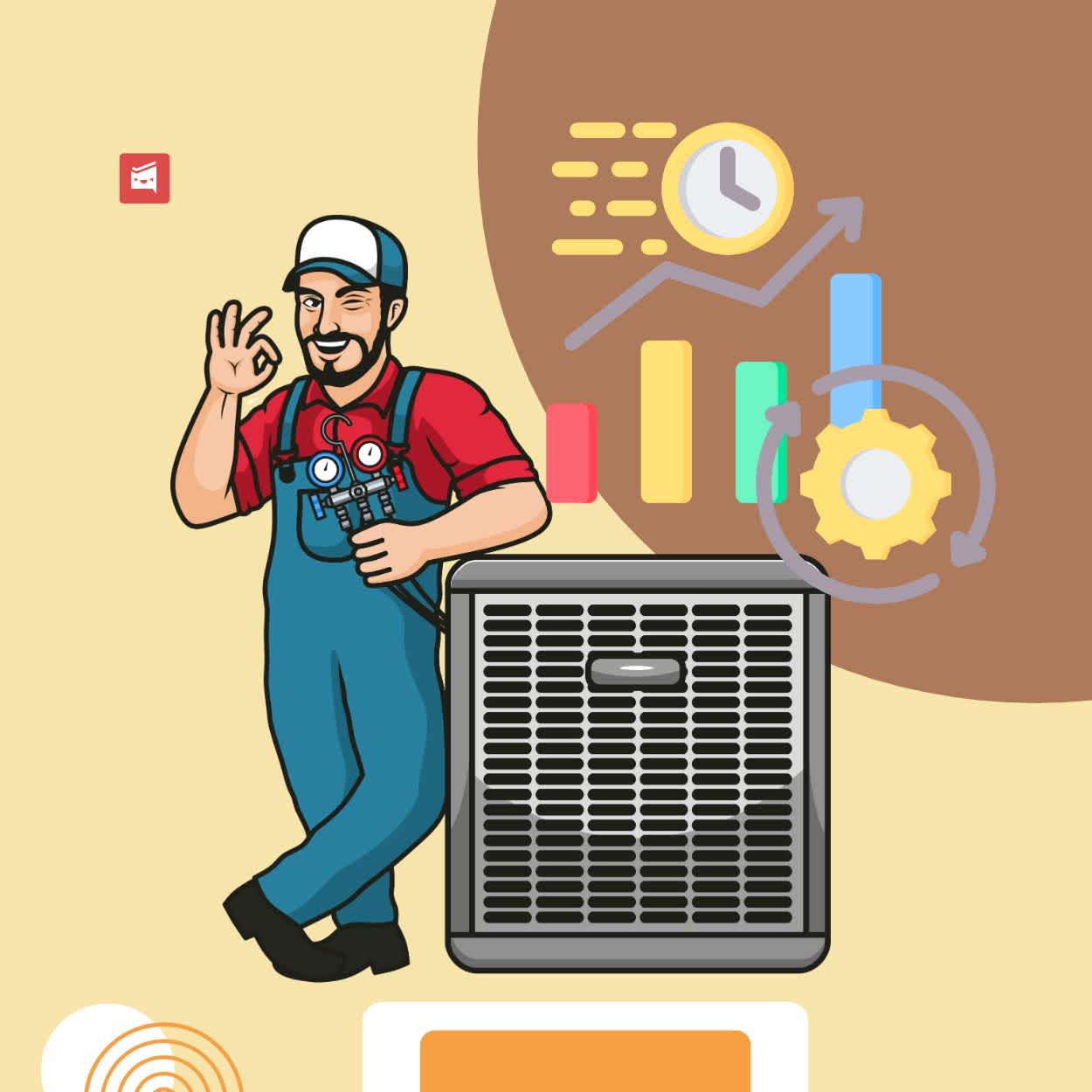4 Time-Saving Techniques for HVAC Businesses to Maximize Efficiency
ByJulian Gette
Workast publisher

Workast publisher
In the world of the HVAC industry, efficiency is a crucial factor that significantly impacts a business's success.
Efficiency in HVAC goes beyond completing tasks swiftly. It also involves optimizing resources and processes in order to create a sustainable and thriving business.
The desire for growth and success in the HVAC industry is a perfect impetus for adopting innovative approaches to time management.
In this article, we will look into four time-saving techniques tailored for HVAC businesses. Additionally, adopting strategies for hvac lead generation becomes crucial in securing high-quality projects. By tapping into targeted leads, HVAC businesses can enhance service efficiency and build a steady pipeline of work, much like companies offering exclusive window replacement jobs receive targeted prospects. These tips will help streamline operations and bolster your business’s bottom line. Let’s dive in.
Embracing technology is paramount for any HVAC business aiming to maximize efficiency. HVAC software with scheduling features, alongside diagnostic applications, offers significant benefits by automating routine tasks such as job scheduling, reducing the margin for error, and saving precious time.
According to Workiz, there are hundreds of HVAC-related apps on the Apple App Store and Google Play.
Of course, there are plenty of useless ones as well, which is why checking out the apps review is important. Alternatively, you can find recommendations from communities on Reddit or ask for suggestions on Quora.
The key point to remember is that by integrating these apps into their workflow, HVAC businesses can optimize their processes. This includes everything from job scheduling and dispatching to inventory tracking and equipment diagnostics, all while utilizing the best HVAC tools to streamline operations and improve efficiency.
The result is a more streamlined and agile operation that enables technicians to focus on their core responsibilities, ultimately translating into improved service delivery and client retention.
In the pursuit of efficiency, HVAC businesses should recognize the potential advantages of outsourcing non-core tasks. Jack, who owns Rapid Heating and Cooling, outsources a wide range of tasks such as accounting, marketing, and administrative functions can often be delegated to external professionals or agencies.
By outsourcing these responsibilities, businesses can tap into specialized expertise, allowing their in-house team to concentrate on core competencies. Outsourcing provides the dual benefit of time savings and cost-effectiveness.
External professionals bring a wealth of experience and efficiency to non-core tasks, often completing them in less time than an internal team would.
According to EmerHub, there are several non-core activities worth outsourcing. These include accounting work such as tax reporting, payroll management, customer support, and even market research.
This approach allows HVAC businesses to allocate resources judiciously, ensuring that every aspect of their operation contributes to overall efficiency and effectiveness.
Effective communication is the backbone of any successful HVAC business. Implementing a centralized communication platform, whether through project management software or messaging apps, is a strategic move that pays dividends in time savings.
It is easy to waste time through faulty communication. According to business leaders, poor communication can cost upwards of 7.47 hours per week. That works out to 20% of a week’s total productivity. If you want to save time, you want to minimize the chances of poor communication and the delays it can create.
A centralized communication platform facilitates seamless communication between team members, reducing the chances of miscommunication and ensuring that everyone is on the same page.
Common options are Slack, Trello, and Microsoft Teams. Contrary to popular opinion, these platforms aren’t just used in corporate offices. Even blue-collar businesses benefit from the convenience that they provide.
This approach eliminates the need for multiple communication channels, prevents information silos, and fosters a collaborative environment. It not only saves time but also enhances team coordination, allowing HVAC businesses to respond promptly to customer inquiries, manage projects efficiently, and adapt swiftly to changing circumstances.
In an era dominated by digital transformation, the HVAC industry can no longer afford to rely on traditional paper-based documentation. The drawbacks of paperwork, including inefficiencies in organization, data retrieval, and the environmental impact, underscore the necessity of transitioning to a paperless system.
Adopting digital forms, cloud storage, and electronic signatures not only contributes to a greener business model but also streamlines documentation processes. The time saved on paperwork can be redirected towards more value-added tasks.
This might include improving service quality or developing new revenue streams. Embracing a paperless approach is not just an environmental responsibility; it is a move that enhances efficiency and competitiveness in the HVAC sector.
Indeed.com states that going paperless not only saves time, it also saves your business money and space, makes information sharing simple, and helps the environment. Going paperless should be a top priority if you can do it.
In conclusion, efficiency in the form of time savings is an important linchpin of success for HVAC businesses. Why is this so? It’s because customer satisfaction is equally important in this line of work.
Delivering a quality experience through fast and efficient service will help build your reputation and grow your business through word of mouth.
